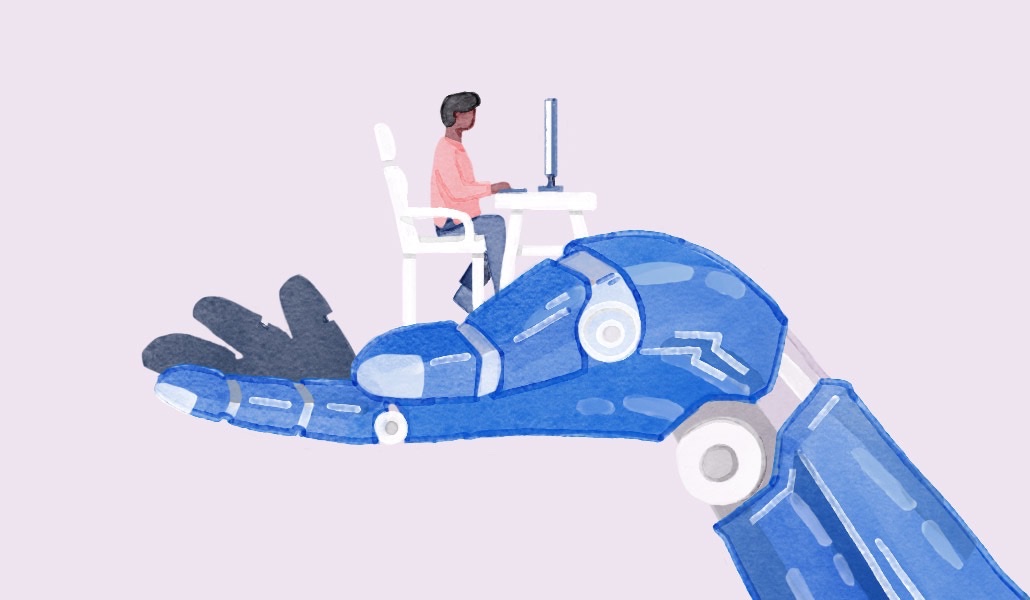How PR firms are incorporating AI into daily tasks

PR companies are among those getting bolder with how they allow workers to experiment with artificial intelligence tools, like generative AI bot ChatGPT, to do parts of their jobs.
ChatGPT can help write press releases, pitches, social media copy and other communications, and other AI tools can generate imagery and other products PR professionals spend a lot of their time creating.
Proponents of greater AI use in the field say it will allow PR professionals to hand off the grunt work to robots and allow them to spend more time deeply thinking and improving products. Others fear it could actually stifle creativity, reduce the quality of content and undermine relationships. It could also fundamentally change the way agencies are paid for their work.
Currently, about 60% of PR professionals are using AI in their workflow, according to a survey from PR management platform MuckRack, which asked over 1,000 respondents this March and April.
Employees at Blast Media, an Indianapolis-based PR agency with 50 employees, started experimenting with AI last year. “Everybody individually was using it kind of on their own accord,” said Kelsey Sowder, vp of public relations.
This year the agency launched a more concentrated effort around using AI. Blast represents business-to-business cloud-based software companies, so its staff need to be able to quickly grasp constantly changing tech propositions that its clients develop. They then translate all tech jargon into a PR narrative that is easily digestible.
ChatGPT has enabled Blast employees to better understand its clients’ businesses much faster, by prompting it to explain tricky tech-based concepts at a high-school level. “It can make somebody’s job a lot easier if you’re able to better understand what your client is doing,” said Sowder.
It can pull research too, but only from up to 2021, “giving a good foundation, but it takes an extra step to get the most recent information,” she said. It’s also good for brainstorming, like asking it to give five different headline ideas for a certain story, she said.
Those at Ditto PR, an agency with 35 employees, are still mostly experimenting with the new tech and figuring out how to weave it into their workflows.
The agency first used AI to generate images for a new business deck with DALL-E – an AI platform where users write a sentence describing an image that it spits out in a matter of seconds. “We’ve used it as sort of a co-pilot in everyday work,” Doug Hesney, Ditto chief of staff, said.
Large PR firms are also pushing ahead with incorporating AI into their organizations. Global communications firm Edelman will next month launch its own AI platform that digests massive amounts of online content to distinguish what kinds of communications are contributing to, or distracting from, brand trust.
The platform can also build simulations off datasets to gauge “before a brand takes an action, is that action likely to contribute to or detract from brand trust or other key KPIs [key performance indicators] that we’re tracking on behalf of our client,” Brian Buchwald, who leads Edelman’s data and analytics arm, DXI, said.
Poor content and other concerns
While the new tools show promise for the industry, experts also have a variety of fears around greater use. ChatGPT often hallucinates, or comes up with answers that are inaccurate. Its responses can also lack context or contain bias.
In MuckRack’s survey, PR professionals’ biggest concern about AI is that the output will be used without first scrutinizing it and therefore lower the quality of conversations in the field.
They’re also worried that those early in their careers will rely too heavily on the tools and won’t learn the principles of the profession.
Hesney’s biggest concern with greater AI use in the industry is “a lot of bad content and a lot of bad products.” He called for cautious and thoughtful adoption. “What I do think is bad is when people rush to use it, they don’t fully understand it, and you get a lot of bad stuff built with it. Like the march of the bad PR bots. You’re gonna get a lot of generic stuff,” he added.
Others share concerns about how greater AI use will impact creativity and innovation.
“I don’t think that ChatGPT or AI stifles creativity right now, but I could definitely see people relying on it so much that they’re not making up their own ideas,” Sowder said. And that’s part of the fun.”
Being transparent with clients about exactly how agencies are using AI is key, Sowder said, and Blast added a step in its onboarding process to include that information.
Privacy and copyright concerns are also a challenge PR firms could face with greater AI use and one they should get ahead of, Buchwald at Edelman said.
“If you’re not making that investment you may not have the infrastructure, you may not have the governance, you may not have the compliance framework to actually do this responsibly,” he said.
How will this change the way the industry works?
Greater AI use will “fundamentally transform PR agencies and even marketing service agencies as we know them,” Aaron Kwittken, founder and CEO of PRophet said.
PRophet is a generative and predictive AI platform used by public relations firms.
Its predictive functions allow it to match pitches and releases to reporters who write on similar topics and would be interested in covering them, and the generative AI allows users to create those pitches and releases, tailoring the messaging for specific recipients.
Such platforms can help complete time consuming research and administrative tasks, especially those typically assigned to more junior employees, allowing them to do more meaningful work, Kwittken said.
Greater use of such platforms and other AI tools in the industry will also change relationships between agencies and clients, he said.
“Instead of billing hourly, because that presumes that we’re taking a longer time to do things, we now need to move to value based building,” he said.
“Nobody wants to talk about it because it’s scary to some agencies, and it’s actually really exciting for others,” he said.


